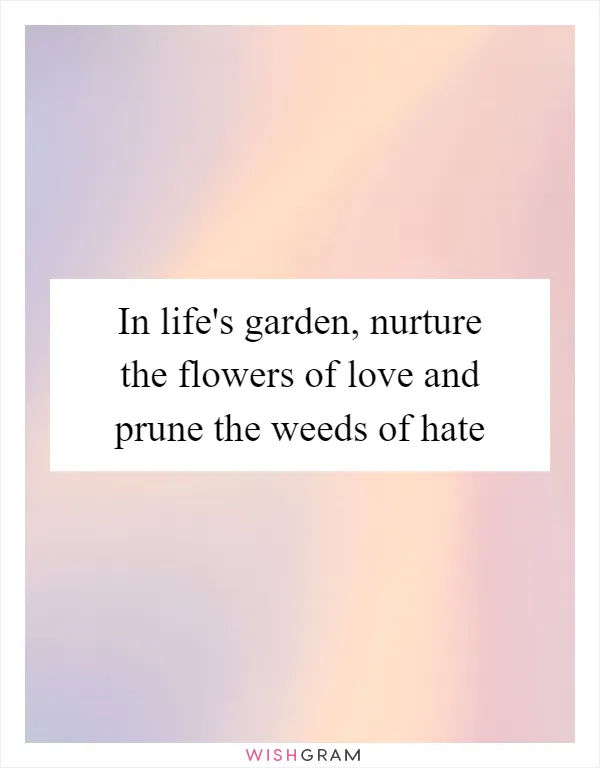In life's garden, nurture the flowers of love and prune the weeds of hate
In the vast expanse of life's garden, there exists an intricate tapestry of emotions, experiences, and relationships. Within this garden, the flowers of love bloom with vibrant colors, spreading their fragrance and beauty to all who encounter them. Yet, amidst this beauty, there also lurk the insidious weeds of hate, threatening to overshadow the blossoms and hinder the growth of our souls.
Love, the most profound and powerful emotion, has the ability to transform lives and bring joy to the darkest corners of our existence. It is the essence that connects us all, transcending boundaries and uniting hearts. Love nurtures compassion, empathy, and understanding, fostering an environment where kindness and acceptance flourish. Like a gentle rain, it quenches the thirst of our souls, allowing us to grow and thrive.
However, hate, the antithesis of love, is a destructive force that can poison the very essence of our being. It spreads like wildfire, consuming everything in its path, leaving behind a trail of bitterness and resentment. Hate blinds us to the beauty that surrounds us, trapping us in a cycle of negativity and despair. It breeds division, sowing seeds of discord and animosity among individuals and communities.
To truly embrace the essence of life, we must consciously choose to nurture the flowers of love and prune the weeds of hate. It is a lifelong journey, requiring patience, self-reflection, and a commitment to personal growth. Just as a gardener tends to their plants, we must tend to our hearts and minds, cultivating love and uprooting hate.
Nurturing the flowers of love begins with self-love. By embracing our own worth and acknowledging our strengths and weaknesses, we can cultivate a deep sense of compassion and acceptance for ourselves. This self-love then radiates outward, touching the lives of those around us. It is through acts of kindness, understanding, and forgiveness that we can sow the seeds of love in the hearts of others.
Pruning the weeds of hate requires a conscious effort to challenge our own biases and prejudices. It demands that we step outside of our comfort zones and engage in meaningful dialogue with those who hold different perspectives. By seeking to understand rather than to judge, we can bridge the gaps that divide us and foster a sense of unity and harmony.
